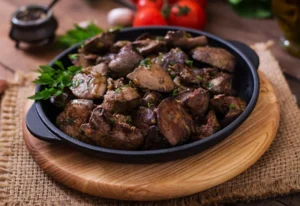
Vitamins occur naturally in food and are needed in varying amounts for various bodily functions. When it comes to producing energy, one of the most common misconceptions is that B vitamins provide the body with fuel. To clear that (and other misconceptions) up, let’s dive into the fascinating world of the B complex vitamins.
Most of us know that vitamin B “has something to do with energy,” but did you know that there are eight B vitamins? And they are all involved, either directly or indirectly with energy production in the body? The B vitamins help a variety of enzymes release energy from carbohydrates and fat, break down amino acids, and transport nutrients around the body, basically turning food into energy. B vitamins are a “complex” and work in concert with each other, helping the body with nerve function and protection and in DNA replication. All B vitamins are essential, contributing to nerve, heart, blood, skin, and eye health and supporting hormonal and immune function. Because B vitamins are water-soluble and excess is usually excreted, they must be obtained from our daily diet.
Vitamin B1 (thiamine)
Thiamine is involved in nerve function and in the conversion of glucose to energy. Many of us lack thiamine because of the modern, high-sugar/carbohydrate diet—too much sugar will deplete thiamine very quickly. Alcohol will also deplete thiamine. Additionally, tea, coffee, raw fish, and shellfish contain thiaminases—enzymes that destroy thiamine—and cooking can decrease the thiamine content of foods.
When it has been too low for long enough, thiamine-required functions may down-regulate. This can cause altered mitochondrial activity, impaired oxidative metabolism, and reduced energy production. Low thiamine will show up as a variety of symptoms that can be mild or marked, including tiredness, lack of appetite, sluggish bowels, digestive and metabolic disturbances, mood, brain, and nerve issues, circulatory and heart issues, decreased reflexes, and numbness, to name but a few. In some cases of deficiency, it can take much higher than the RDI amounts of thiamine to get an individual back on track.
Thiamine is found in most foods, albeit in mostly small amounts. The best food sources are pork, fish, lamb’s fry, other offal, especially heart and kidney, and nutritional yeast. Beans and some grains are a good source, but you need to know how to prepare them for detoxification purposes as per traditional culinary practices.
Vitamin B2 (riboflavin)
Riboflavin is a heat-stable B vitamin that the body uses to metabolise carbohydrates, fats, and protein into glucose for energy, as well as acting as an antioxidant. Riboflavin must be present in high enough amounts in the body to allow other B vitamins, including B6 and folate, to do their jobs. Alcohol abuse can deplete riboflavin. Those who do not consume meat or dairy may be at risk of deficiency.
Some of the most common riboflavin deficiency symptoms include sore throat, cracks in the lips and corners of the mouth, swollen tongue, scaly skin, redness of the lining of the mouth and throat, and weakness. The most bioavailable sources of riboflavin are animal foods, including eggs and dairy, with beef liver being the richest source. It is found in plant foods, but you would have to consume a much higher volume of food to get similar amounts.
Vitamin B3 (niacin)
Niacin is an incredibly important vitamin that plays a role in brain function, heart health and blood flow, energy production, metabolism, DNA repair, cholesterol synthesis, and more. You may have heard of niacin because it is a nutritional precursor of the bioactive molecules nicotinamide adenine dinucleotide (NAD) and nicotinamide adenine dinucleotide phosphate (NADP), coenzymes central to metabolism. Toxicity at high doses, over 3 g per day, of supplemental niacin has been seen.
Alcoholism, malnutrition, digestive disorders, and prolonged use of certain medications that interfere with absorption can lead to a deficiency of niacin. Deficiency may present as low mood, disorientation, head tension, apathy, tiredness, queasiness, a swollen mouth, loose bowels, scaly skin, and low brain function. Niacin is found in most foods, with the highest amounts in animal foods, especially offal, poultry, and fish.
Vitamin B5 (pantothenic acid)
Pantothenic acid plays a role in the conversion of the foods we eat into usable energy. Pantothenic acid is critical in the manufacturing of red blood cells, producing sex and stress hormones, and supporting a healthy digestive tract and immune system.
Since pantothenic acid occurs in almost all foods, deficiency is very rare; however, it may occur in combination with deficiencies of other B vitamins. Symptoms of a deficiency include low mood, tiredness, irritability, poor sleep, digestive upset, hot feet, respiratory illnesses, and muscle tension. People at a greater risk of developing a deficiency include alcoholics, women on oral contraceptives, those with severe malnutrition, and people with impaired absorption of nutrients due to certain medications or digestive disorders. The best food sources of pantothenic acid are all meats, eggs, mushrooms, avocados, and whole dairy.

Vitamin B6
Vitamin B6 has several derivatives, including pyridoxal, pyridoxal 5-phosphate (P5P), and pyridoxamine. These are all important compounds involved in numerous biological functions. B6 supports the nervous system, haemaglobin and energy production, blood sugar balance, body comfort, mood, cardiovascular health, immune function, and the list goes on.
Deficiency symptoms include low energy, mood changes, muscle tension, and PMS. Because of the diverse nature of B6’s role in the body, if B6 is lacking, problems can arise from anywhere. Food sources of B6 are mainly from the animal food camp—red meat, fish, organ meats, eggs, etc.—but plant foods like avocados do contain a good amount of B6. In the Ayurvedic tradition, grass-fed beef was believed to “relax the mind, satisfy the stomach, strengthen the blood, and improve liver function.”
Vitamin B7 (biotin)
Like other B vitamins, biotin helps to convert carbohydrates into usable fuel. It also plays a role in metabolising fats and proteins to be used in the body and supports a healthy metabolism. Biotin is essential for building and repairing body tissue, for healthy hair, skin, and nails, and for brain, thyroid, and heart function. Causes of low biotin may be pregnancy, long-term use of some medications, alcohol abuse, smoking, malabsorption problems, and an imbalance of other B vitamins. Bodybuilders or others that are consuming high-protein diets may require more biotin.

Deficiencies are relatively rare in the West, but without enough biotin present in the body, low energy levels, weight gain, digestive problems, metabolic issues, changes in appetite, dry hair and skin, hair loss, poor mood, etc., may manifest. Egg yolk is one of the richest sources of biotin in the diet, but chicken liver (and other animal livers) beats it by a mile. Be careful with raw egg white, as it contains avidin, a biotin inhibitor. Legumes are another good source, but much of it will leach into the cooking/soaking water—another reason why animal foods are often superior as nutrient sources.
Vitamin B9 (folate)
Folate is famous as the B vitamin especially required during pregnancy. Folate supports foetal development and growth, is essential for brain health and for red blood cell production, and keeps your bones healthy. People who can be at risk of lower folate are pregnant or breastfeeding women, alcoholics, those with liver or kidney disease, or anyone on certain medications. Deficiency may present as low energy, poor immune or digestive function, developmental problems, swollen tongue or tender mouth, mood changes, pale skin, or premature greying.
The best folate food sources are very similar to biotin, but with more options in the plant food world. Beets, asparagus, broccoli, and oranges are all good sources. In fact, fermenting vegetables and fruits will increase the availability of folate and other B vitamins; plus, very little will be lost because there is no cooking and/or leaching.
Vitamin B12
Vitamin B12, also known as cobalamin, is probably the most well-known B vitamin, possibly because it is nigh-on impossible to get in any useful amounts from any plant food sources. In broad terms, the B12 found in algae, fermented plant foods, and certain mushroom species is a B12 analogue and is not utilised by the human body in a meaningful way. The very best source of B12 is any animal food, especially liver.
B12 is the B vitamin that is stored the longest in the human liver, and therefore deficiency signs can take years to manifest. But leaving it that long is dangerous, and so care must be taken to make sure your B12 levels are kept within normal ranges. Vegans and vegetarians are most at risk from B12 deficiency, as are those who have issues with their stomach secretions (relatively common) or those on certain medications. Signs of deficiency include low energy or “falling asleep standing up,” lack of focus and mental clarity, low mood, infertility, low testosterone, digestive problems, low thyroid, lack of motivation, muscle tension, and nerve issues. B12 deficiency is extremely dangerous, so please see your GP if you suspect you may lack B12.
Recommended Daily Intake of B Vitamins
A Recommended Daily Intake (RDI), or “Adequate Intake,” for B6 and biotin is designed to prevent obvious deficiency, not to achieve optimal health. Additionally, an active 25-year-old will have different nutrient requirements than a sedentary 50-year-old. To this end, the RDI of each B vitamin is included as a guide only.
| Vitamin RDI | Females | Males | Pregnancy | Lactation | 51+ |
| B1 (thiamine) | 1.1mg | 1.2mg | 1.4mg | 1.5mg | 1.1/1.2mg |
| B2 (riboflavin) | 1.1mg | 1.3mg | 1.4mg | 1.6mg | 1.1/1.3mg |
| B3 (niacin) | 14mg | 16mg | 18mg | 17mg | 14/16mg |
| B5 (pantothenic acid) | 5mg | 5mg | 6mg | 7mg | 5mg |
| B6 | 1.3+ mg | 1.3+ mg | 1.9+ mg | 2+ mg | 1.5/1.7+ mg |
| B7 (biotin) | 30+ mcg | 30+ mcg | 30+ mcg | 35+ mcg | 30+ mcg |
| B9 (folate) | 400+ mcg | 400+ mcg | 600+ mcg | 500+ mcg | 400+ mcg |
| B12 | 2.4mcg | 2.4mcg | 2.6mcg | 2.8mcg | 2.4mcg |

